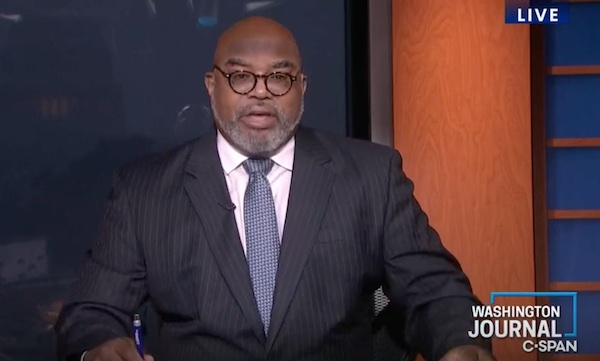 Here we go again. Black leaders in Pittsburgh are complaining that local TV news misrepresents African-Americans. “I’m tired of turning on the news and seeing a sister with her hair all over the place, five teeth missing and looking like she just stepped out of the bedroom,” one activist said at a recent Black Political Empowerment Project summit on media portrayal of violence.
Here we go again. Black leaders in Pittsburgh are complaining that local TV news misrepresents African-Americans. “I’m tired of turning on the news and seeing a sister with her hair all over the place, five teeth missing and looking like she just stepped out of the bedroom,” one activist said at a recent Black Political Empowerment Project summit on media portrayal of violence.
Community groups said TV stations only show up for bad news–crime and court stories, in particular. Local news directors responded that they go where the news is, without regard to race or neighborhood. It’s a debate that’s come up in every market he’s ever worked in, says Mike Goldrick, now the news director at WPXI, who attended the summit. What’s different this time is that local stations are discussing the possibility of a joint plan of action to improve coverage of minority communities.
Bad news is easy to find, Goldrick told NewsLab. It comes into the newsroom on the scanner every day. But he said it’s harder to find good news to cover in minority communities because the stations don’t always know about it. “People assume we know and they don’t think it’s their responsibility to tell us,” he said.
To help those stories get on the assignment sheet, Goldrick is proposing that local stations work together to train non-profits and other groups on how to pitch stories. Other ideas that were discussed in small groups at the summit are still being developed. “It’s a work in progress,” Goldrick said. But he’s heartened that the meeting wasn’t just an opportunity for people to yell at the news media but also focused on finding solutions.
The idea Goldrick shared may have some promise. But I’d argue that more enterprise on the part of journalists also would go a long way toward changing the picture TV conveys of communities of color. That means spending time getting to know what really matters to different communities in your coverage area. Talk to experts and community leaders, but don’t stop there.
Find a listening post and really listen, advises Victor Merina, a former investigative reporter at the Los Angeles Times. It could be a barbershop, a church, a mosque, a coffee shop or a park. “Just go there and keep your ears open,” he says.
Among his other tips:
Do your homework. Read widely, especially special interest publications, ethnic media, community newsletters and websites.
Go with a guide. Find someone in the community who can act as an intermediary, can help put sources at ease, and can assist you in avoiding cultural landmines.
Never assume. Making assumptions can betray your ignorance and lead to unfair or inaccurate stories.
What suggestions would you add to improve cross-cultural reporting?









3 Comments
We have come to the point where just because someone complains we think that is reason to react and do something. What if what the news is showing in terms of stories reflects the truth in these crime ridden communities? Seems to me that worrying about image is useless and superficial in actually helping people.
No news TV organization can survive doing “community news” or “good news”. It’s not in their DNA.
Good news is boring and viewers and readers don’t want it. And people doing what they are supposed to do (good news) is not necessarily news.
TV news has always fed on a steady diet of blood, guts, murder and mayhem. The color of the perpetrators or the victims doesn’t matter.
If there was a steady diet of murder and mayhem in a wealthy white neighborhood the news stations would be all over that too.
Maybe if the people complaining were less focused on “image” and more concerned with the criminals they might not have to worry about TV news coverage.
As for all this talk of community meetings and local stations working together…..please. Local stations working together to put a TV happy face of crime ridden communities? That’s what “journalists” are supposed to do? Sounds like more PR than news.
How would this “joint plan of action to improve coverage of minority communities” work? Would they refuse to do a story on a black family that just lost a loved one to a black killer that is on the run because some white news directors decide they don’t want to make the community look bad that day?
This is going to get sticky for Mr. Goldrick.
We face this same issue in our DMA. We DO have a couple of local black ministers who do an excellent job of keeping us up to date on the GOOD things going on and we cover them. But the truth hurts. For whatever reason, the young black population is living up to the stereotype. robberies, murders and drive by shootings almost always involve the black population, at least in our area. We have gone to the extreme of not mentioning race unless its relevant to the story. I guess the real trick is to develop the ability to listen to your audience. How many times do we get a call from someone and we assume they are a crackpot? Or in the rush of the moment, simply not really pay attention to what they are saying? There ARE good voices out there in the black and hispanic community, the trick is to be able to figure out the ones that are genuine versus the troublemakers who simply want to see themselves on the news.